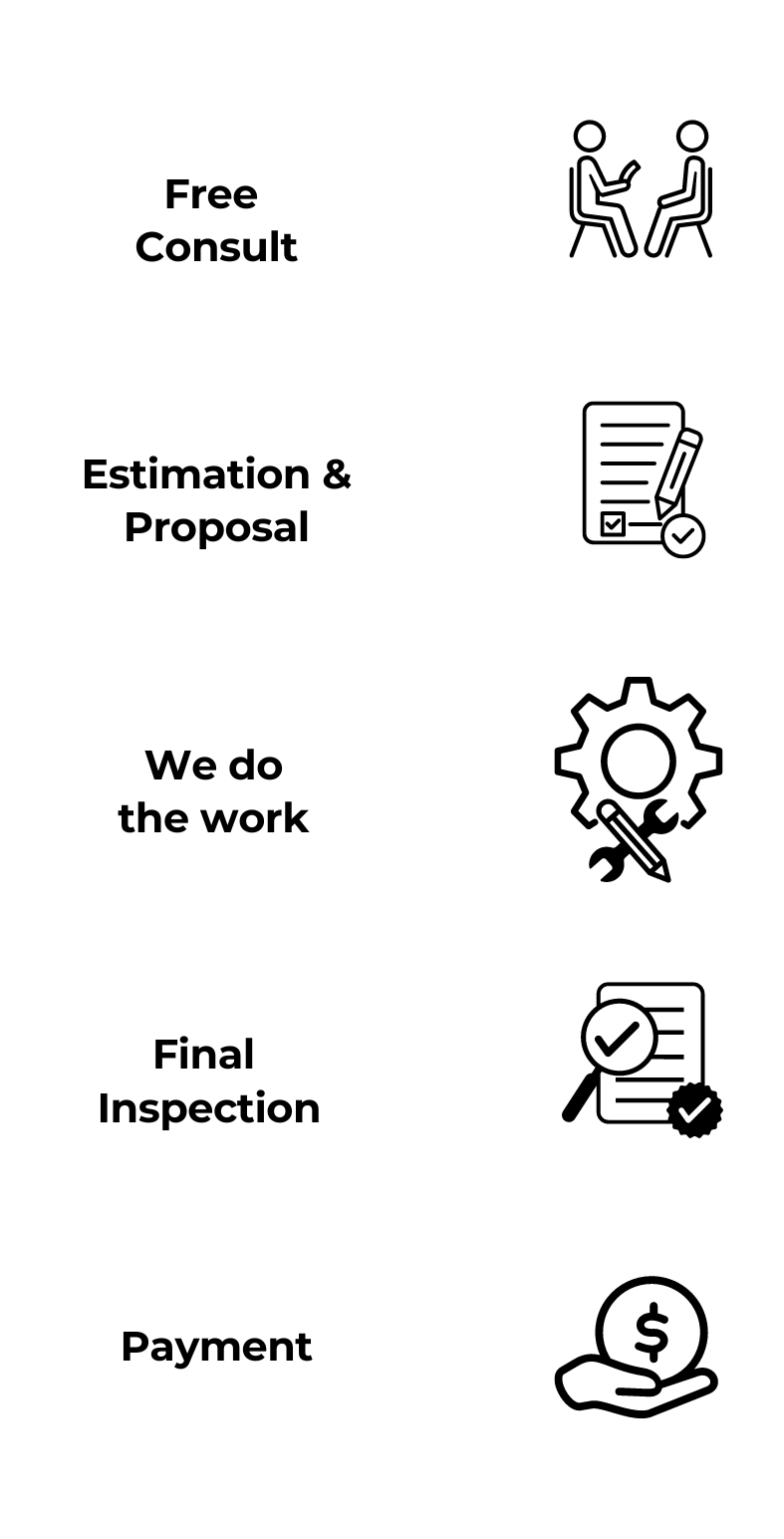BLOG
Choosing Between Asphalt and Concrete: Which is Best for Your Driveway?
One of the most important decisions when building or repairing a driveway is selecting the right material. Asphalt and concrete are the two most common choices for driveway construction, and both have distinct benefits and drawbacks. Understanding these differences is essential to making an informed choice that fits your needs, preferences, and budget.
The Benefits of Asphalt for Driveways
Asphalt is a popular choice for many homeowners and businesses due to its affordability and durability. Asphalt driveways are typically less expensive to install than concrete, and they offer flexibility in colder climates where freeze-thaw cycles are common. Because asphalt is less likely to crack from these temperature fluctuations, it’s often the preferred material in regions with harsh winters.
Additionally, asphalt driveways can be resurfaced more easily. Rather than tearing up the entire driveway, a new layer of asphalt can be applied over the existing surface, making it a cost-effective option for long-term maintenance. Asphalt driveways also have a smoother, dark finish that many find aesthetically appealing, especially when freshly sealed.
However, asphalt does require more maintenance than concrete. It needs to be sealed regularly—typically every 2 to 3 years—to protect it from water damage, UV rays, and general wear and tear. Without proper maintenance, asphalt can develop cracks and potholes, which will need timely repairs to prevent further damage.
The Benefits of Concrete for Driveways
Concrete driveways are renowned for their longevity and strength. A properly installed and maintained concrete driveway can last for several decades, making it a great investment for long-term durability. While the initial cost is higher than asphalt, concrete’s minimal maintenance requirements can save homeowners money over time. It’s a solid choice in warmer climates where temperature fluctuations are less of a concern.
One of the biggest advantages of concrete is its versatility in design. Concrete can be stamped, stained, or textured to create various finishes that mimic the look of brick, stone, or other materials. This flexibility in design makes it a popular option for homeowners looking to add curb appeal to their properties.
Despite its strength, concrete is more susceptible to cracking in colder climates. Freeze-thaw cycles can lead to surface cracks, and repairs for concrete are more challenging and expensive than for asphalt. Additionally, concrete can become stained from oil, chemicals, and general use, so occasional cleaning is necessary to maintain its appearance.
Key Considerations When Choosing Between Asphalt and Concrete
When deciding between asphalt and concrete for your driveway, consider factors such as your climate, budget, and long-term maintenance preferences. Asphalt is ideal for regions with cold winters and for those looking for a more affordable option upfront. It’s also easier to repair and resurface, making it a popular choice for homeowners who prefer low-cost maintenance over the years.
On the other hand, concrete offers greater longevity and design options, making it the better choice for warmer climates and those seeking a driveway with a more upscale appearance. While it’s a higher initial investment, concrete requires less frequent repairs and maintenance compared to asphalt.
Asphalt vs. Concrete: Lifespan Comparison
The lifespan of both materials largely depends on proper installation and maintenance. An asphalt driveway, with regular sealing and maintenance, can last between 15 to 20 years. In contrast, a well-installed concrete driveway can last upwards of 30 years, especially in climates with less extreme temperature fluctuations.
However, the long-term maintenance costs must also be considered. While asphalt requires periodic sealing and occasional repairs, the cost of resurfacing is relatively affordable. On the other hand, when concrete starts to crack or spall, repairs can be more costly, and replacing sections of the driveway can become a significant investment.
Making the Right Choice for Your Property
At the end of the day, choosing between asphalt and concrete comes down to your specific needs, preferences, and local climate conditions. If you live in an area with harsh winters and prefer an affordable option that’s easy to repair, asphalt might be the better fit. If you’re looking for a more durable, low-maintenance option with design flexibility, concrete is the way to go.
No matter which material you choose, proper installation is key to ensuring the longevity and performance of your driveway. At Breeden Home and Land Services, we have over 20 years of experience in asphalt and concrete installation and repair. Our team of experts works closely with you to understand your needs and ensure that your driveway is built to last.
Conclusion
Both asphalt and concrete have their pros and cons, and the right choice depends on your individual needs and budget. Whether you’re looking for the affordability and flexibility of asphalt or the strength and longevity of concrete, Breeden Home and Land Services is here to help you make the best choice for your driveway. Our skilled team offers high-quality installation and repair services for both materials, ensuring that your driveway remains durable, functional, and visually appealing for years to come.
Ready to upgrade your driveway? Contact Breeden Home and Land Services today to schedule a consultation and learn more about our expert asphalt and concrete paving services.
DISCOVER WHAT OUR CUSTOMERS HAVE TO SAY ABOUT US
REVIEWS
REVIEW US ON GOOGLE
our process
Our process is simple and only contains a few simple steps

proudly serving these areas
Austin
Leander
Lago Vista
Manor
Elgin
Jerrell
Temple
Belton
Cedar Creek
Del Vale
San Marcos
Burnet
Bastrop
